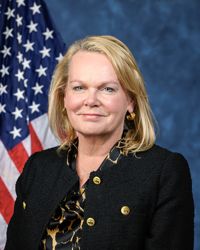S. 281: Transparency In Charges for Key Events Ticketing Act
This bill, officially titled the "Transparency In Charges for Key Events Ticketing Act" or the "TICKET Act," aims to improve transparency and fairness in event ticket sales, affecting both initial and secondary markets for tickets. Here is a detailed breakdown of its main provisions:
All-Inclusive Ticket Price Disclosure
Starting 180 days after the bill's enactment, ticket sellers (including those in the secondary market) must:
- Display Total Price: Clearly show the total price of an event ticket in any advertisement or listing.
- Inform Buyers: Disclose the total ticket price at the moment it is first shown to a potential customer and throughout the purchasing process.
- Provide Itemized Fees: Offer a breakdown of the base ticket price and any additional fees before the purchase is finalized.
Speculative Ticketing Ban
Under this legislation, ticket sellers who do not own the tickets they are selling are prohibited from offering them for sale. This restriction aims to curb speculative practices where sellers list tickets they do not have in hand. However, secondary market ticket sellers can market services to help customers obtain tickets if they:
- Do not present these services as event tickets.
- Maintain a clear distinction between the service and actual tickets.
- Clearly state before the selection that the service does not guarantee a ticket.
Disclosures
Ticket sellers must provide various transparency disclosures, which include:
- Secondary Sale Notification: If reselling tickets, sellers must inform buyers that they are engaged in secondary sales.
- No False Affiliation Claims: Sellers cannot claim any official affiliation with venues, teams, or artists unless they have permission.
Refund Requirements
The bill outlines refund expectations for canceled or postponed events. Key requirements include:
- If an event is canceled, a full refund of the ticket price must be issued.
- If postponed, customers should receive a replacement ticket (if the original ticket becomes invalid) or a full refund depending on the situation.
- Sellers must disclose their refund policies clearly and explain how customers can obtain refunds.
Federal Trade Commission Reporting
Within six months after the bill's enactment, the Federal Trade Commission (FTC) is to report on its enforcement of the Better Online Ticket Sales Act of 2016, discussing challenges and recommending improvements.
Enforcement and Penalties
Violations of this act are treated as unfair or deceptive practices under the Federal Trade Commission Act, allowing the FTC to enforce penalties against violators.
Definitions
The bill clarifies terms such as "event," "ticket issuer," "secondary market ticket issuer," and various fees associated with event tickets, to ensure a consistent understanding throughout the legislation.
Relevant Companies
- LYV (Live Nation Entertainment) - As a major seller of event tickets, Live Nation may need to adjust its pricing disclosures and refund policies according to the new regulations.
- TKTM (Tickemaster) - This platform, part of Live Nation, will need to comply with the transparency requirements for ticket pricing and resales.
- SEAS (SeaWorld Entertainment) - As a provider of live events, SeaWorld may have to adapt its ticketing process in response to the refund and disclosure mandates.
This is an AI-generated summary of the bill text. There may be mistakes.
Sponsors
2 bill sponsors
Actions
5 actions
| Date | Action |
|---|---|
| Apr. 29, 2025 | Committee on Commerce, Science, and Transportation. Reported by Senator Cruz with amendments. With written report No. 119-17. |
| Apr. 29, 2025 | Placed on Senate Legislative Calendar under General Orders. Calendar No. 63. |
| Feb. 05, 2025 | Committee on Commerce, Science, and Transportation. Ordered to be reported with amendments favorably. |
| Jan. 28, 2025 | Introduced in Senate |
| Jan. 28, 2025 | Read twice and referred to the Committee on Commerce, Science, and Transportation. |
Corporate Lobbying
0 companies lobbying
None found.
* Note that there can be significant delays in lobbying disclosures, and our data may be incomplete.





